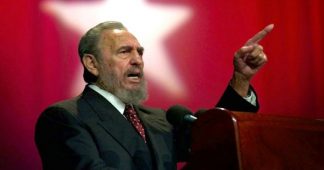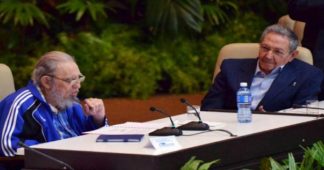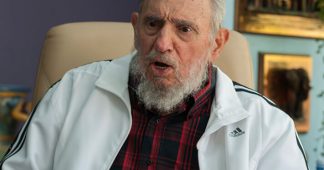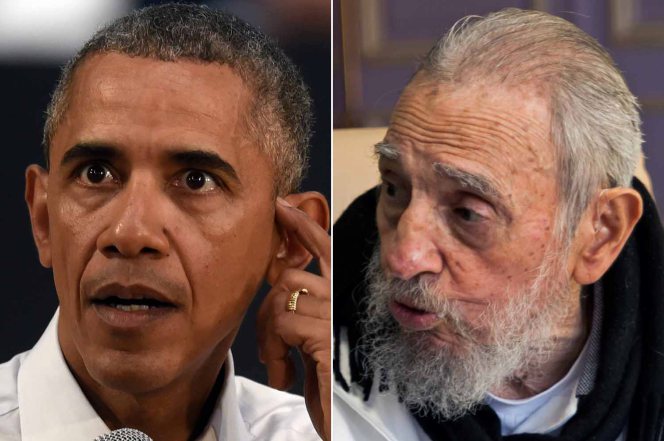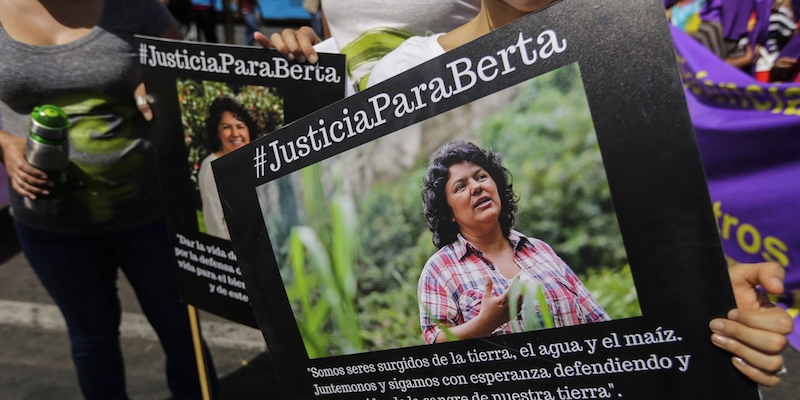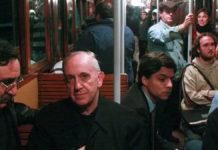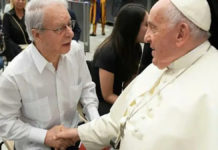Τhe comment by Donald Trump on Fidel Castro does not make us learn much about Castro, but it makes us learn much about Trump himself (and also about the extent of illusions people around the world have developed concerning this person). Here is what the President-elect of the United States had to say about Fidel Castro the day of his death:
“Today, the world marks the passing of a brutal dictator who oppressed his own people for nearly six decades. Fidel Castro’s legacy is one of firing squads, theft, unimaginable suffering, poverty and the denial of fundamental human rights.”
D.K.
History Will be the Judge: Fidel Castro, 1926-2016
by TARIQ ALI
Fidel Castro, Cuba’s leader of revolution, has died aged 90. Here is an extract from Tariq Ali‘s introduction to The Declarations of Havana, Verso’s collection of Castro’s speeches.
On 26 July 1953 an angry young lawyer, Fidel Castro, led a small band of armed men in an attempt to seize the Moncada barracks in Santiago de Cuba, in Oriente province. Most of the guerrillas were killed. Castro was tried and defended himself with a masterly speech replete with classical references and quotations from Balzac and Rousseau, that ended with the words: ‘Condemn me. It does not matter. History will absolve me.’ It won him both notoriety and popularity.
Released in an amnesty in 1954, Castro left the island and began to organize a rebellion in Mexico. For a time he stayed in the hacienda that had once belonged to the legendary Mexican revolutionary Emiliano Zapata. In late November 1956 eighty-two people including Fidel Castro and Che Guevara set sail from Mexico in a tiny vessel, the Granma, and headed for the impenetrable, forested hills of the Sierra Maestra in Oriente province.
Fidel Castro in context
The revolutionary’s achievements in the face of US meddling made him a powerful symbol of resistance against hegemony.
by Belen Fernandez
As of the year 2006, Fidel Castro, Cuba’s revolutionary leader, who has died aged 90, had reportedly been the subject of no fewer than 638 assassination plots by the CIA.
The Guardian newspaper notes that these had ranged from mundane bombing and shoot-’em-up schemes to more ludicrous proposals, such as one involving “a diving-suit to be prepared for him that would be infected with a fungus that would cause a chronic and debilitating skin disease”.
At first glance, of course, it may seem odd and overreactive that a global superpower would engage in neurotic efforts for over half of a century to take out the leadership of an island nation smaller than the US state of Pennsylvania.
Havana in mourning: ‘We Cubans are Fidelista even if we are not communist’
By Stephen Gibbs, Jonathan Watts and Ted Francis in Havana
Revolution … is sacrifice,” echoed the trembling voice of an elderly Fidel Castro around the streets of Old Havana at dawn on Saturday, as Cuban state radio began replaying his speeches, the day after his death.
Dani, 37, who takes tourists around the cobbled streets on his bicitaxi, had woken to be told the momentous news by a neighbour. “I didn’t believe it,” he said. Like many Cubans of his generation he had begun to assume that Castro would be around for ever. El Comandante’s 80th birthday, a decade ago, had been celebrated with posters declaring “80 more years”.
Outside the art deco Bacardi building, one of many private businesses expropriated in the 1960s by a young, triumphant Castro, Mario Astoria, a security guard, was sitting on his own. “I feel this in my heart,” he said. “When Fidel came to power this country was a pebble in the ocean. Now everyone knows about us.”
